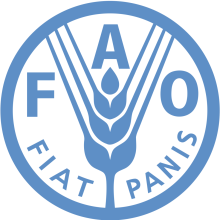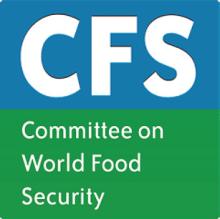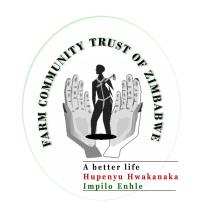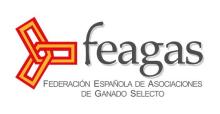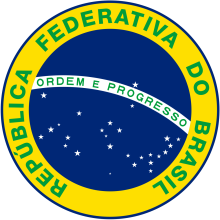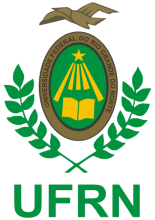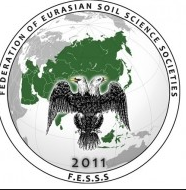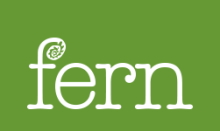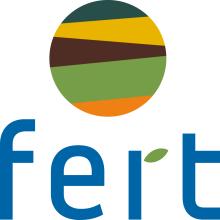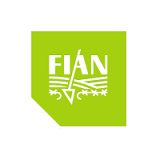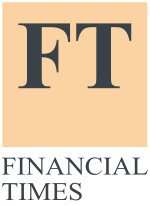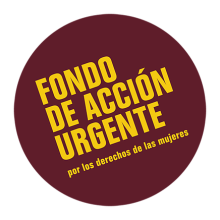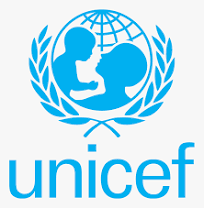The Land Library includes resources from more than 1,900 national and international information providers. Learn more about the organizations and institutions using the Land Portal to share their open-access research, data and stories.
FAO Regional Office for the Near East and North Africa
The mission of FAO in the Near East and North Africa is to achieve sustainable food security for all and to help vulnerable communities cope with and recover from shocks and crises.
To do this, FAO helps Member States work toward sustainable increases in agriculture production, minimize depletion and degradation of already scarce natural resources, boost rural development and reduce food loss and waste.
Eliminating food insecurity and malnutrition are persistent challenges in the Near East and North Africa. The structural dependence of its countries on food imports, make the region highly vulnerable to shocks, increasing the inability of entire communities to feed themselves.
Recent conflicts and civil instability in many countries of the region have also compounded the situation. As a result, hunger, food insecurity and malnutrition are widespread and require comprehensive and urgent intervention.
FAO is helping governments face these challenges by improving the capacity of countries to collect, produce and analyse data for policy formulation. This is done by strengthening their commitment and accountability and by coordinating efforts for joint action.
FAO also provides direct support to improve the livelihoods of millions of small farmers and rural communities, especially in countries undergoing conflict where the Organization help farmers and their families recover from crises.
FAO, Committee on World Food Security (CFS)
The Committee on World Food Security (CFS) was set up in 1974 as an intergovernmental body to serve as a forum for review and follow up of food security policies. In 2009 the Committee went through a reform process to ensure that the voices of other stakeholders were heard in the global debate on food security and nutrition. The vision of the reformed CFS is to be the most inclusive international and intergovernmental platform for all stakeholders to work together in a coordinated way to ensure food security and nutrition for all. CFS was reformed to address short term crises but also long term structural issues. The Committee reports annually to Economic and Social Council of the United Nations (ECOSOC).
Who is part of CFS?
CFS is made up of Members, Participants and Observers. The membership of the Committee is open to all Member States of The Food and Agricultural Organization (FAO), The International Fund for Agricultural Development (IFAD) or The World Food Programme (WFP) and non-Member States of FAO that are Member States of the United Nations. Member States are encouraged to participate in CFS sessions at the highest level possible. Participants can be from representatives of UN agencies and bodies, civil society and non-governmental organizations and their networks, international agricultural research systems, international and regional financial institutions and representatives of private sector associations and private philanthropic foundations. CFS may invite other interested organizations relevant to its work to observe entire sessions or specific agenda items.
The High Level Panel of Experts on Food Security and Nutrition (HLPE) was created in October 2009 as an essential part of the CFS reform to provide independent, scientific knowledge-based analysis and advice. HLPE reports are requested by CFS and their findings and recommendations serve as a basis for CFS policy discussions.
Farm Africa
Poverty is widespread in sub-Saharan Africa, with more than 40% of the population living below the poverty line, surviving on incomes of less than $1.90 a day.
That’s where Farm Africa comes in.
Africa possesses 60% of the world's uncultivated land suitable for crop production and has huge capacity for development. Farm Africa believes that Africa has the power to feed itself.
Farm Africa helps farmers grow more, sell more and sell for more. We pioneer techniques that boost harvests, build rural incomes, sustain natural resources and help end Africa’s need for aid.
We work with communities, the private sector and governments to make sure we’re finding the most effective ways to increase food production.
Typically, our staff are from the local area, can speak the local language, and have a deep understanding of the local context.
Our technical experts closely monitor the results of projects, and adapt approaches as needed. Recognising that the private sector has a huge role to play in developing prosperity in rural Africa, we help smallholder farmers to develop links to markets.
What we do
Farm Africa’s local staff provide the tools and expertise to enable smallholders in eastern Africa to increase their harvests, whether they farm crops, livestock, fish or the forest.
We train them to be more commercial, adding value to surpluses by milling, drying, or turning their produce into products that fetch a higher price.
With better food for their families and reliable incomes from their businesses, farmers can build for the future.
How we work
Farm Africa is different. We are a specialist practitioner, focusing on four east African countries and concentrating only on farming.
Our 170 staff on the ground are highly qualified east African experts with a deep understanding of the region.
Sustainability
We promote ‘climate-smart’ approaches so farmers can manage their natural resources sustainably, become more resilient to climate change and build long-term food security.
Practical approach
Our mix of agricultural innovation and training in effective marketing skills equips farmers to grow and earn more.
Through business training and setting up farmers' groups, they can get a higher price for their crops, and by learning how to process and store their produce they reduce waste and have more crop to sell.
We're also piloting mobile technology as a cost effective and efficient way of reaching the largest number of farmers possible.
Spreading knowledge
Farm Africa tests new farming techniques and technologies and trains farmers how to use them. Success breeds success - once trained, farmers pass on their new-found knowledge to others, ensuring our work has an impact well beyond our projects.
By testing farming approaches in the region’s various soils and climates, the evidence we collect is more robust and the techniques we spread are proven to work.
We are developing new, self-sustaining business models, such as:
Sidai - a franchised animal health social enterprise
Enterprise fund - supporting small-scale producers using innovative technologies to improve production
Private sector relationships - connecting barley farmers with business.
Farming without frontiers
Although eastern Africa is widely varied in its landscapes and peoples, there are many common farming problems everyone faces. Our approach is to spread tried-and-tested methods as widely as possible. Farm Africa works on regional projects across more than one country, sharing knowledge without the constraint of country borders.
Farm Community Trust of Zimbabwe
Farm Community Trust of Zimbabwe (FCTZ) is a Zimbabwe NGO formed in 1996 to respond to the growing demands for development services in the large-scale commercial farming areas.
Fauna & Flora International
Fauna & Flora International (FFI), formerly the Fauna and Flora Preservation Society, is an international conservation charity and non-governmental organization.
Its mission is to conserve threatened species and ecosystems worldwide, choosing solutions that are sustainable, based on sound science, and which take into account human needs.
Its focus is on protecting biodiversity (the diversity of life on Earth), which underpins healthy ecosystems and is critical for the life support systems that humans and all other species rely on.
Federação de Órgãos para Assistência Social e Educacional
A FASE – Federação de Órgãos para Assistência Social e Educacional – foi fundada em 1961. É uma organização não governamental, sem fins lucrativos, que atua hoje em seis estados brasileiros e tem sua sede nacional no Rio de Janeiro. Desde suas origens, esteve comprometida com o trabalho de organização e desenvolvimento local, comunitário e associativo.
Com seus quase 55 anos, a FASE tem como objetivo contribuir na construção de uma sociedade democrática por meio de alternativas ao atual desenvolvimento, defendendo causas como a justiça ambiental, a soberania alimentar, o direito à cidade e a igualdade de gênero.
MISSÃO
A missão da FASE é contribuir para a construção de uma sociedade democrática e atuante em favor de alternativas ao modelo de desenvolvimento vigente, com justiça ambiental e universalização de direitos sociais, econômicos, culturais, ambientais, civis e políticos como condições iniciais para a inclusão de grande parcela da população do país ainda em condições de desigualdade, pobreza e discriminação.
OBJETIVOS
Avançar na construção de um campo político crítico ao projeto desenvolvimentista dominante, de modo a contribuir na disputa coletiva por um Brasil fundado na democracia substantiva e na sustentabilidade socioambiental. A mobilização social e política da sociedade brasileira é condição e meio para garantia e fortalecimento dos direitos humanos, de uma nova agenda de proposição de alternativas ao modelo de desenvolvimento, das políticas públicas, por meio de novas práticas de controle e participação social para a mudança de vida da maioria da população.
Federación Española de Ganado Selecto
La Federación Española de Asociaciones de Ganado Selecto (FEAGAS) es una Organización sin ánimo de lucro constituida el 15 de mayo de 1982, por las Asociaciones Nacionales de Criadores de Ganado Selecto, Entidades Colaboradoras del Ministerio de Agricultura, Pesca y Medio Ambiente (MAPA) (actualmente Ministerio de Agricultura, Alimentación y Medio Ambiente), para la llevanza de los Libros Genealógicos del ganado, organizaciones que, a partir del año 1987, fueron reconocidas oficialmente como Asociaciones de Ganado de Raza Pura en la transposición, que se llevó a cabo, de la normativa de la Unión Europea al ordenamiento jurídico español.
Posteriormente FEAGAS fue reconocida oficialmente por el MAPA (actualmente MAGRAMA), de acuerdo con la Orden Ministerial de 26 de junio de 1992, por la que se regula la representación de las Organizaciones o Asociaciones de Raza Pura ante los Organismos Oficiales, según Resolución de la Secretaría General de Producciones y Mercados Agrarios de fecha 29 de octubre de 1992.
FEAGAS participa en las reuniones de seguimiento de la situación general del sector ganadero (bovino, ovino, caprino, porcino, equino y otras especies), que periódicamente son convocadas por la Dirección General de Recursos Agrícolas y Ganaderos del Ministerio de Agricultura, Alimentación y Medio Ambiente.
FEAGAS organiza, por delegación expresa del Ministerio de Medio Agricultura, Alimentación y Medio Ambiente, la presencia del ganado español en los Certámenes Nacionales e Internacionales de Ganado de Raza Pura, oficialmente aprobados por el MARM.
A partir del año 1993, FEAGAS participa, como representante del sector de la Ganadería de raza pura de España, en el Grupo de Selección y Reproducción Animal del COPA-COGECA, en el marco de las Organizaciones Agrarias de la Unión Europea.
Desde el año 1998 FEAGAS desempeña el cargo de Secretaría General Permanente de la Federación Iberoamericana de Razas Criollas (FIRC), que reúne a las Organizaciones del área geográfica Iberoamericana y de España, dedicadas a la preservación y mejora genética del ganado criollo y autóctono, en el ámbito de la Cabaña Ganadera de Iberoamérica y de España.
Desde su fundación, FEAGAS desempeña la Presidencia y Secretaría General de la Unión Europea de Asociaciones de Ganado Selecto (UNEGAS), que integra a Organizaciones de Criadores de Raza Pura de Francia, Portugal y España.
FEAGAS fue reconocida por el Director General de Ganadería del MAPA, actual MAGRAMA, con fecha 3 de marzo de 2004,como Organización en el ámbito de las Razas Equinas Españolas.
FEAGAS es promotor y miembro fundador de INVAC, Organización Interprofesional de la Carne de Vacuno Autóctono de Calidad, oficialmente reconocida por el MAPA, en la actualidad MAGRAMA, participando en su desarrollo como sector productor de la misma.
Con diferente periodicidad FEAGAS organiza el Congreso Nacional de Zootecnia, foro de encuentro de las Administraciones Públicas, Entidades Privadas, Universidades, Investigadores, Sector Profesional de la Ganadería y Ganaderos.
Con carácter periódico FEAGAS organiza el Congreso Iberoamericano de Razas Criollas y Autóctonas, lugar de encuentro del sector profesional y ganadero de Iberoamérica y España.
Federación Uruguaya de Cooperativas por Ayuda Mutua
El Movimiento Cooperativo de Vivienda por Ayuda Mutua surge de las entrañas mismas de la clase trabajadora para resolver la problemática de la vivienda, y a partir de esa necesidad concreta fue gestando barrios que reivindican una vida digna y decorosa para sus habitantes. El cooperativismo de vivienda, en sus orígenes, estuvo ligado de manera indisoluble al Movimiento Sindical uruguayo y, a partir de allí, tomó una serie de definiciones estratégicas de carácter totalmente clasista. Esta visión globalizadora como clase, le permitió abarcar un conjunto de demandas que apuntan a una definición integral de la propuesta. El cooperativismo no se agota en la vivienda, sino que a partir de ese presupuesto clasista, engloba todas las necesidades en tanto clase y no como sector parcializado de la sociedad.
Federal government of Brazil
The Federal Government of Brazil is the national government of the Federative Republic of Brazil, a republic in South America divided in 26 states and a federal district. The Brazilian federal government is divided in three branches: the executive, which is headed by the President and the cabinet; the legislative, whose powers are vested by the Constitution in the National Congress; and the judiciary, whose powers are vested in the Supreme Federal Court and lower federal courts. The seat of the federal government is located in Brasília.
Source: Wikipedia (consulted d.d. February 20th, 2020).
Federal University of Rio Grande do Norte
The Federal University of Rio Grande do Norte (Portuguese: Universidade Federal do Rio Grande do Norte, UFRN) is a public Brazilian university funded by the Brazilian federal government, located in the city of Natal, Rio Grande do Norte, Brazil.
Formally established on December 18, 1960, it includes 60 departments providing over 70 different undergraduate courses, as well as a number of graduate programs.
UFRN is the top ranked university in the state of Rio Grande do Norte, and one of the best among universities from all over the country according to 2012 league tables.
Source: Wikipedia (consulted d.d. February 21st 2018)
Federation of Eurasian Soil Science Societies
The Federation of Eurasian Soil Science Societies was established by the collaboration of Soil Science Societies of four different countries which are Turkey, Russia, Azerbaijan and Kazakhstan in 2012. After 2016, Romania and Kyrgyzstan Soil Science Societies joined to FESSS. The primary goal of the Federation is to share knowledge on the most dynamic part of earth-soils and to "bridge the gap" between soil science, policy making, and public knowledge both nationally and internationally in the region. As a finite resource, the soils of this region are under pressure from many human induced activities for many centuries. Therefore, the Federation aims to develop strategies to form a fertile collaboration securing regions' soils from threads such as soil degradation; erosion; pollution and many others. In order to form a base for the collaboration, we decided to publish an International journal (Eurasian Journal of Soil Science) to incite communication between soil scientists working in the region. The Journal is intended to have an impulsion impact raising eagerness among soil scientists to effectively communicate and consistently share the experience and data with each other. I believe that this Journal will lead us (as soil scientists) to conceive political, economical, and anthropogenic aspects and issues of soils in the region. I am contented to see that our collaboration under the Federation of Eurasian Soil Science Societies has eventuated in this promising Journal. This journal will be the vibrant voice of the regions' soil scientists. We all accredit that the Journal will breed and conduce a lasting interest, collaboration and appreciation among us and that you will find it enlightening and inspiring.
Dr.Sergei SHOBA
President
Feinstein International Center
We are a research and teaching center that promotes the use of evidence and learning in operational and policy responses to protect and strengthen the lives, livelihoods, and dignity of people affected by or at risk of humanitarian crises.
-
Mission Statement
We promote the use of evidence and learning in operational and policy responses to protect and strengthen the lives, livelihoods and dignity of people affected by or at risk of humanitarian crises.
Fern
Fern (also Stichting Fern) is a Dutch foundation created in 1995. It is an international Non-Governmental Organization (NGO) set up to keep track of the European Union's involvement in forests and to coordinate NGO activities at the European level. Through its work, Fern aims to increase the political and economic opportunities for people to create a more balanced society in which human rights are fully respected and environmental and social values are fully integrated.
Although Fern is known for its work on forests, since 2000 Fern has widened its scope beyond forests to also include work on general aid, trade and climate issues, as many of the decisions made in these areas have a direct or indirect impact on forests and forest peoples’ rights. Fern's campaigns fall within the following areas: forests and climate, forest governance, biodiversity offsetting, bioenergy, and finance and trade. In all these areas, Fern works very closely with a large number of environmental groups and social movements across the world.
Fern's official mission statement describes the organisation and its aims thus: Fern works to achieve greater environmental and social justice, focusing on forests and forest peoples’ rights in the policies and practices of the European Union.
Fert
Fert est une association française de coopération internationale pour le développement agricole des pays en développement et émergents. Elle a pour objet de contribuer à créer dans ces pays les conditions permettant aux agriculteurs d’améliorer leurs conditions de vie et de travail et de concourir à la sécurité alimentaire de leur pays.
Fert accompagne les agriculteurs dans la création d’organisations (groupements de producteurs, coopératives, caisses de crédit agricole, centres de formation …) leur permettant d’apporter des solutions durables aux problèmes qu’ils rencontrent dans l’exercice de leur métier et la défense de leurs intérêts.
Fert conduit, dans 9 pays, 22 actions de terrain dans lesquelles elle mobilise des responsables et techniciens agricoles dans une démarche de solidaritépour partager leur expérience d’engagement professionnel et de gestion de leurs organisations.
Fert est membre d’AgriCord, alliance internationale fédérant 12 agri-agences de 10 pays : Allemagne, Belgique, Brésil, Canada, Espagne, Finlande, France, Philippines, Sénégal, Suède.
FIAN Ecuador
FIAN es una organización de derechos humanos que tiene como objetivo fundamental la defensa del derecho a la alimentación, reconocido en la Declaración Universal de Derechos Humanos y otros instrumentos internacionales de derechos humanos.
FIAN International
FIAN International was founded in 1986 as the first international human rights organization to advocate for the realization of the right to adequate food and nutrition.
FIAN consists of national sections and individual members in over 50 countries around the world. FIAN is a not-for-profit organization without any religious or political affiliation and has consultative status to the United Nations.
FIAN’s mission is to expose violations of people's right to food wherever they may occur. We stand up against unjust and oppressive practices that prevent people from feeding themselves. The struggle against gender discrimination and other forms of exclusion is integral part of our mission. We strive to secure people's access to the resources that they need in order to feed themselves, now and in the future.
FIAN’s vision is a world free from hunger, in which every woman, man and child can fully enjoy their human rights in dignity, particularly the right to adequate food, as laid down in the Universal Declaration of Human Rights and other international human rights instruments.
source: https://www.fian.org/who-we-are/who-we-are/
Filosofia, Letras e Ciências Humanas
A Faculdade de Filosofia, Letras e Ciências Humanas foi fundada em 25 de janeiro de 1934 com o nome de Faculdade de Filosofia, Ciências e Letras (FFCL). Idealizada como o polo central da Universidade de São Paulo (USP), destinava-se à formação de pesquisadores em diversas áreas do conhecimento, abrangendo as áreas de ciências exatas, humanas e biológicas.
Em sua atual configuração, a Faculdade de Filosofia, Letras e Ciências Humanas – mais conhecida como FFLCH – oferece cinco cursos de graduação: Ciências Sociais, Filosofia, Geografia, História e Letras, acolhendo 1.669 novos alunos por ano.
Organizada em 11 departamentos, com 27 programas de pós-graduação, dezenas de centros, núcleos e laboratórios, e uma comunidade de mais de 15 mil pessoas, a FFLCH é a maior unidade de ensino da USP e está distribuída por seis prédios na Cidade Universitária Armando de Salles Oliveira, na capital paulista.
Nos seus 85 anos de história, a FFLCH formou importantes intelectuais, com vasta contribuição para o pensamento político, social e artístico brasileiros. Considerada o principal centro de estudos em humanidades do Brasil, a FFLCH busca atender à tripla vocação – ensino, pesquisa e extensão – de forma integrada.
Financial Times
The Financial Times (FT) is an English-language international daily newspaper, headquartered in London, with a special emphasis on business and economic news.
FINLEX
Finlex is an online database of up-to-date legislative and other judicial information of Finland. Finlex is owned by Finland's Ministry of Justice. Most of the databases are only available in Finnish and Swedish. Some translations of Finnish acts and decrees are also available in English and other languages. Case-Law in legal literature database is also available in English.
Firenze University Press
L’Università di Firenze ha mostrato attenzione nei confronti dell’editoria digitale sin dal 2000, con un progetto varato sperimentalmente all’interno del Sistema Bibliotecario di Ateneo.
In seguito al successo di questa iniziativa viene creata Firenze University Press (FUP) con Decreto Rettorale n. 232 del 15 maggio 2003.
Nell’anno seguente FUP viene trasformata in Centro Editoriale di Ateneo, rafforzando la sua posizione all’interno della Università di Firenze. Questa assicura da una parte un indotto di gran pregio per il materiale delle pubblicazioni della Casa Editrice, dall’altra si pone come garanzia di qualità di tutta la produzione.
FUP, in prima linea nella continua ricerca di eccellenza e di innovazione tecnologica, ha compreso l’importanza di investire non solo nella produzione e distribuzione dei contenuti, ma anche nella loro conservazione attraverso l’archiviazione delle copie cartacee e digitali delle opere pubblicate presso le Biblioteche Nazionali e favorendo l’integrazione con gli archivi aperti a partire dal repository istituzionale dell’Università di Firenze:
FLORE (Florence Research)
Nel 2007 Firenze University Press ha presieduto il convegno “L’editoria universitaria tra ricerca e mercato” presso l’Università degli Studi di Firenze.
Focus on Land in Africa (FOLA)
Focus on Land in Africa (FOLA) is an educational resource for development practitioners and policy makers that explores how land and natural resource rights affect, and are effected by, development in Africa. Through raising awareness of these issues, FOLA aims to elevate land and natural resource rights as an urgent priority for development in Africa.
While never offering a blueprint, FOLA shares a diversity of insights, experiences, and lessons from countries across the continent, highlighting the critical role of property rights in local livelihoods and development.
It examines the impact of land and natural resource rights on agriculture, the environment, conflict, urban poverty, women's empowerment, and other development issues. It provides in-depth analysis of a variety of property rights issues, and how they are addressed in different countries and contexts.
Engage With Us
FOLA invites your questions and contributions. We welcome briefs, case studies, audio-visual material, and commentary. Please see our submission and review guidelines for more information.
Contact us at focusonlandinafrica [at] gmail.com and follow us on Twitter @AfricaLandRts
FOLA Partners
FOLA is a joint initiative of the World Resources Institute (WRI) and Landesa, with initial funding from the Bill & Melinda Gates Foundation. Content providers include land and natural resource rights experts and development practitioners working on Africa.
Focus on the Global South
Focus on the Global South was established in 1995 to challenge neoliberalism, militarism and corporate-driven globalisation while strengthening just and equitable alternatives. We work in solidarity with the Global South - the great majority of humanity that is marginalized and dispossessed by globalisation – believing that progressive social change and Global South solidarity are imperative if the needs and aspirations of oppressed peoples, particularly in Asia, Latin America and Africa, are to be met.
Focus has the capacity and experience to convene a broad spectrum of progressive social forces around ideas and processes. We have a history of bringing together diverse actors – from government through to social movements, from North and South -- to share and deepen analysis of emerging power patterns and new experiences of social transformation as the basis for broad collective mobilization for democratic change. We were at the forefront of the struggles that brought forth the World Social Forum, derailed the World Trade Organization, and brought forth alternative visions through our deglobalisation paradigm.
We have used many different approaches including research and analytical writing, debates, seminars and conferences, education and study programs, network building, international solidarity and fact-finding missions, direct action and parliamentary testimonials, social forums, joint campaigns and media.
While adhering to our key principles, Focus has responded to the rapidly changing political landscape: in the first phase of globalization we provided a strong critique of neoliberalism; as the global justice movement emerged, Focus connected Asian movements and realities with the global context; now we are updating our deglobalization paradigm to better address the climate crisis.
Foncier & Developpement
Le portail « Foncier et Développement » résulte d’un travail collectif impliquant un ensemble d’experts membres du Comité technique « Foncier et développement ».
Ce comité œuvre, depuis plus de 15 ans, pour une meilleure reconnaissance et sécurisation des droits fonciers des populations. Il est présidé par l’Agence Française de Développement (AFD) et le Ministère de l’Europe et des Affaires Européennes et Etrangères (MEAE). Son animation est assurée par le Gret.
Fondo de Acción Urgente
El Fondo de Acción Urgente de América Latina y el Caribe FAU-AL es una organización feminista, de la sociedad civil, comprometida con la protección y promoción de los derechos humanos de la diversidad de mujeres y de sus organizaciones en la región, mediante apoyos de respuesta rápida, iniciativas colaborativas, investigaciones y publicaciones.
Fondo para el Desarrollo de los Pueblos Indígenas de América Latina y El Caribe
El Fondo para el Desarrollo de los Pueblos Indígenas de América Latina y El Caribe —Fondo Indígena— es el único organismo multilateral de cooperación internacional especializado en la promoción del autodesarrollo y el reconocimiento de los derechos de los Pueblos Indígenas, creado en 1992 durante la celebración de la II Cumbre Iberoamericana de Jefes de Estado y de Gobierno, en Madrid, España. De esta forma, el Fondo Indígena es uno de los Programas de Cooperación Iberoamericana.
No olvidemos que, en la actualidad, en la región existen entre 40 y 50 millones de indígenas que luchan por romper el binomio etnicidad-pobreza que ha determinado la existencia de la gran mayoría de ellos. En este sentido, el Fondo Indígena es una respuesta a la problemática, un instrumento estratégico para el desarrollo con identidad.
Espacio de Concertación
Somos una institución que sustenta la representación paritaria en igualdad de condiciones entre los delegados gubernamentales e indígenas de los Estados miembros, basándonos en la construcción de consensos necesarios para el desarrollo —económico, social, político y cultural— con identidad de los Pueblos Indígenas, los cuales participan directamente en nuestros planes, así como en los órganos de gobierno y dirección.
Una institución consolidada
Después de casi dos décadas de existencia, el Fondo Indígena ha logrado superar las metas propuestas en su creación, consolidándose como organismo internacional. Así lo reconocieron los Jefes de Estado y de Gobierno reunidos en el marco de la XVI Cumbre Iberoamericana celebrada en noviembre del 2006 en Montevideo, Uruguay:
“Este es un momento histórico para los Pueblos Indígenas latinoamericanos que ya cuentan con un organismo propio a nivel internacional que defiende sus derechos e intereses”, afirmó en aquel entonces uno de los delegados indígenas.
Fonds international de secours à l'enfance des Nations Unies
L’UNICEF – pour United Nations International Children’s Emergency Fund, soit Fonds des Nations unies pour l’enfance – est une agence des Nations unies, créée en 1946, dont le siège est à New York, aux États-Unis. Elle est chargée, dans le monde entier, de défendre les droits des enfants, de répondre à leurs besoins essentiels et de favoriser leur plein épanouissement.
La priorité est donnée aux enfants les plus vulnérables, notamment victimes de la guerre, de catastrophes naturelles, de la pauvreté extrême et de toute forme de violence ou d’exploitation dans les pays les plus démunis. Elle intervient également en cas d’urgence en coordination avec les organismes des Nations unies, les principales organisations humanitaires, et les gouvernements nationaux.
Pour appuyer son action au service des enfants en difficulté, l’UNICEF accrédite des comités nationaux dans les pays industrialisés. Des accords de coopération régissent les relations entre l’UNICEF et ses comités.
L’UNICEF France, dont le siège est à Paris, est l’un de ces comités. Il s’agit d’une association de loi 1901, fondée en 1964 sur accord d’accréditation. Elle a été reconnue d’utilité publique par décret du 2 décembre 1970.
Les cinq missions de l’UNICEF France
- Assurer en France la représentation de l’UNICEF auprès des pouvoirs publics, des milieux politiques, économiques, syndicaux, professionnels et culturels, des organisations non gouvernementales, des associations et fondations, des collectivités locales, des médias et, d’une manière générale, de l’opinion publique.
- Promouvoir les actions de coopération et d’entraide en faveur de l’enfance organisées par UNICEF et veiller à l’application de la Convention internationale relative aux droits de l’enfant (CIDE).
- Contribuer, par la collecte de fonds, à l’accroissement des ressources de l’UNICEF en vue de renforcer son intervention permanente ou d’urgence dans le monde.
- Entreprendre des actions d’information et d’éducation visant le développement et la protection de l’enfant dans le cadre de l’application de la CIDE.
- Prendre part, par des propositions et actions appropriées, à la formulation de politiques publiques nationales et locales en faveur de l’enfance.
L’association a le pouvoir d’ester en justice en demande et en défense, et en particulier a le droit de se porter partie civile chaque fois qu’elle le jugera utile.
Gouvernance et Charte éthique
Plusieurs textes internes régissent le fonctionnement de l’UNICEF France. L’association s’est dotée de statuts, d’un règlement intérieur et d’une charte éthique. L’UNICEF France est également tenue de respecter certains principes de gouvernance et de déontologie en raison de son accréditation par l’UNICEF et de son agrément au Comité de la charte et du don en confiance. L’association s’est en outre dotée d’un Comité d’audit, de gouvernance et d’éthique, organe garant du respect de la charte éthique et présidé par un membre extérieur à l’UNICEF France.
Les organes de gouvernance que sont le conseil d’administration et le comité d’audit, de gouvernance et d’éthique ont pour rôle d’assurer la gestion et le développement de l’association.
Le conseil d’administration composé de 22 membres élus établit le règlement intérieur qui dicte le fonctionnement de l’association. Il est présidé par Adeline Hazan, élue le 18 juin 2022 pour un mandat de trois ans.
Désigné par le conseil d’administration, le Comité d’audit, de gouvernance et d’éthique émet des recommandations et avis au Bureau de l’UNICEF France ainsi qu’au conseil d’administration sur des sujets de contrôle, de transparence financière, de gestions des risques et de gouvernance. Composé de huit membres élus, il est actuellement présidé par Dominique LEDOUBLE.
Nos domaines d’intervention :
- Santé : vaccination, prévention et soins de la mère et du bébé, lutte contre le paludisme…
- Eau, hygiène et assainissement : accès à l’eau potable, lavage des mains, toilettes…
- Nutrition : lutte contre la malnutrition et les carences, allaitement maternel…
- Education : éducation de base et de qualité, égalité filles-garçons…
- Protection : enfants soldats, travail forcé, mariage précoce, violences sexuelles, maltraitance…
- Egalité des chances et inclusion : lutte contre la discrimination, inclusion des enfants handicapés…
- Changement climatique : prévention et sensibilisation aux conséquences du changement climatique…
- Urgences : interventions lors de conflits, catastrophes naturelles, épidémies…
Obtenir des résultats concrets
Ces actions, menées grâce au soutien de nos donateurs et partenaires, ont déjà permis de grandes avancées. Depuis l’adoption de la Convention internationale des droits de l’enfant :
- La mortalité des nouveau-nés a baissé de plus d’un tiers
- Le nombre de femmes mourant pendant la grossesse ou l’accouchement a baissé de 45%
- Un tiers de l’humanité en plus a accès à une source sûre d’eau potable
- Jamais dans le monde autant de filles n’ont été scolarisées
Les défis sont encore immenses tant les atteintes aux droits de l’enfant restent nombreuses, mais ces exemples montrent que des progrès majeurs sont possibles moyennant une mobilisation et un engagement forts de la part des Etats et de la société civile.
Food & Business Knowledge Platform
The Food & Business Knowledge Platform (F&BKP) is the gateway to knowledge for Food and Nutrition Security. We act as knowledge brokers, connecting people and networks in business, science, civil society and policy to (co-)create, exchange and use knowledge for inclusive and ecologically sustainable food systems.
The F&BKP is an independent, open platform. We have no members, but we welcome partners. Organizations and networks from around the world participate in and are supported by the activities of the Platform.
Come join us if you share the Platform’s vision of achieving Food and Nutrition Security for everyone, everywhere.
Vision & mission
The Food & Business Knowledge Platform (F&BKP) is the gateway to knowledge for food and nutrition security. Connecting business, science, civil society and policy. The F&BKP invites networks and organizations from local, regional and global levels to participate in the Platform. Come share, improve and generate new knowledge on food systems.
Activities
The core role of the F&BKP is to support the co-creation of better policies and practices on Food and Nutrition Security (FNS) in North and South. We focus on knowledge brokering to facilitate the creation, exchange and use of academic, applied and tacit knowledge.
Thematic focus
The F&BKP supports a forward-looking knowledge agenda to address the multi-dimensional challenges of Food and Nutrition Security (FNS).
Partners & beneficiaries
The F&BKP is an open and independent platform that welcomes organizations and networks operating within the F&BKP’s thematic focus areas as partners.
Small grants fund
The F&BKP Office manages a small grants fund, called the Knowledge Management Facility (KMF). Through the KMF, we finance knowledge activities of our partners, such as workshops, policy dialogues and other knowledge exchange events, lessons learned analyses, short-term studies, or the exploration of new themes.
Organization
The F&BKP was initiated by the Dutch Ministry of Foreign Affairs in 2013. It is one of five Knowledge Platforms that were established to contribute to a robust knowledge base on the priority areas of the Dutch government’s development cooperation policy.
Food and Agricultural Immunology
Food and Agricultural Immunology is an international open access journal publishing immunological research with applications in food, agricultural, environmental and veterinary science.
Food and Agricultural Immunology aims to expand our understanding of the interactions at the interface of food and immune systems. It is essential reading for food scientists, immunologists and all those concerned with the interaction between food and immune systems.
Food and Agricultural Immunology covers the following topics:
- Development of diagnostic systems – all types of ligand-based assays, e.g. antibody, aptamer
- Application of ligand-based assays for the detection or identification of molecules of interest in food science, agricultural research, veterinary investigations and clinical systems relating to food allergy or sensitivity to agricultural chemicals
- Effects of food on the immune system
- Studies on allergy and allergic reactions and investigations into food allergies
- Development of allergen-free food systems
- Development of novel assay formats
- Applications of assay systems to the monitoring of food items in relation to safety and labelling
- Food quality issues, e.g. speciation, adulteration and contamination
- Comparisons between different analytical techniques and the use of immunological techniques and methods
The journal accepts original research and review articles.
The journal operates a single-blind peer review policy. All articles will be made freely and permanently available online through gold open access publication.
Food and Agriculture Organization of the United Nations
The Food and Agriculture Organization of the United Nations leads international efforts to defeat hunger. Serving both developed and developing countries, FAO acts as a neutral forum where all nations meet as equals to negotiate agreements and debate policy. FAO is also a source of knowledge and information. We help developing countries and countries in transition modernize and improve agriculture, forestry and fisheries practices and ensure good nutrition for all. Since our founding in 1945, we have focused special attention on developing rural areas, home to 70 percent of the world's poor and hungry people.

